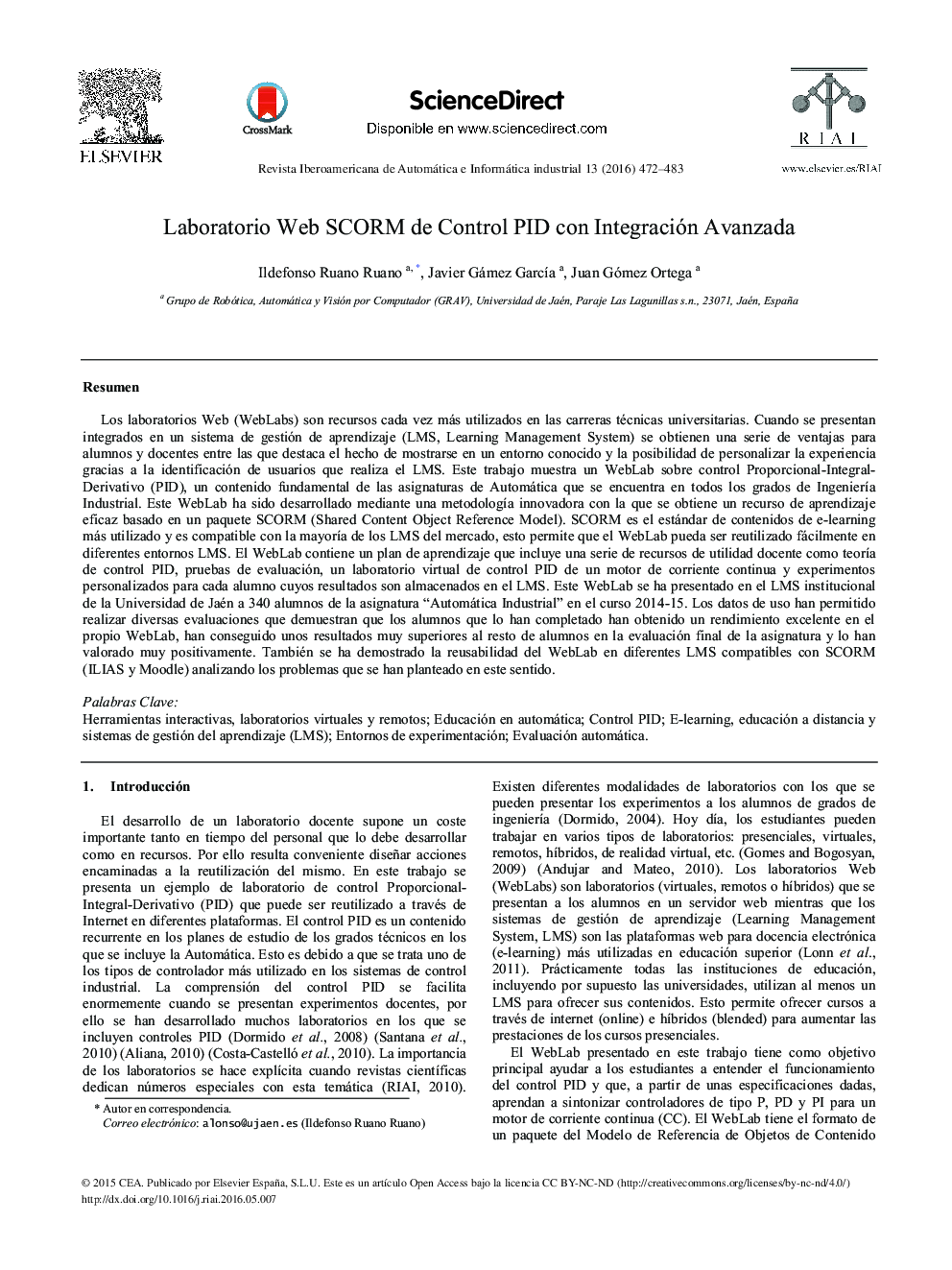| Article ID | Journal | Published Year | Pages | File Type |
|---|---|---|---|---|
| 8050653 | Revista Iberoamericana de Automática e Informática Industrial RIAI | 2016 | 12 Pages |
Abstract
Web laboratories (WebLabs) are education resources that are increasingly used in university technical grades. When they are presented integrated into a learning management system (LMS) several advantages for students and teachers are obtained, e.g. laboratories are shown in a familiar environment and the experience can be customized thanks to the user identification performed by the LMS. A Proportional-Integral-Derivative (PID) control WebLab has been created in this work, PID control is a fundamental content of the Automatic subjects found in all grades of Industrial Engineering. This WebLab was developed through an innovative methodology that generates an effective learning resource based on Shared Content Object Reference Model (SCORM). SCORM is the more used standard for e-learning contents; it is compatible with most LMS market, this way the WebLab can be easily reused in different LMS environments. The WebLab presented in this paper is based on a learning path that includes a series of useful learning resources such as PID control theory, assessment tests, a PID control virtual laboratory (VL) of a DC motor and customized experiments for each student whose results are stored in the LMS. This WebLab has been presented in the institutional LMS of the University of Jaén to 340 students of the subject “Industrial Automation” in the 2014-15 course. Several evaluations have been performed from the data obtained in the WebLab. Evaluations have shown that students who completed the WebLab have achieved excellent performance in the WebLab itself, they have achieved higher results than remaining students in the final evaluation of the course and they have highly positively valued the WebLab. It has also demonstrated the reusability of the WebLab in different SCORM-compliant LMS (Moodle and ILIAS) analyzing the problems that have arisen in this regard.
Related Topics
Physical Sciences and Engineering
Engineering
Control and Systems Engineering
Authors
Ildefonso Ruano Ruano, Javier Gámez GarcÃa, Juan Gómez Ortega,
